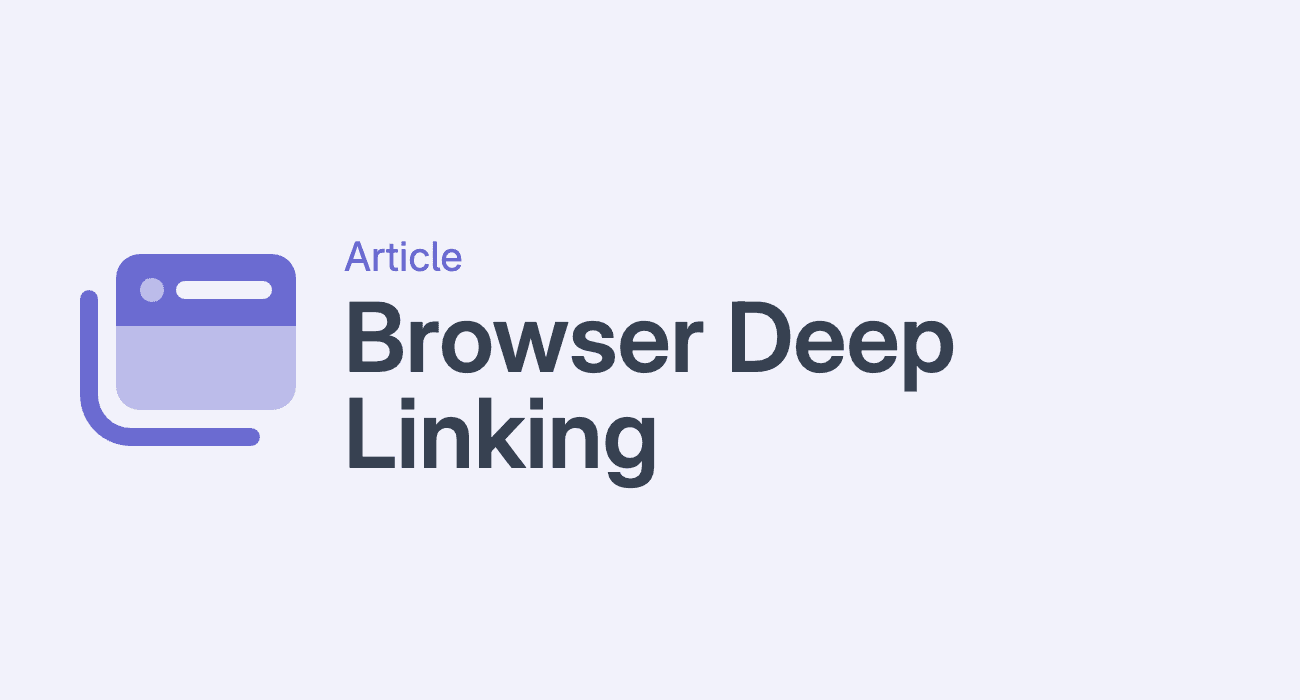Why Opening Links in the Default Browser Boosts Conversions
Discover how OnLynk's deep linking to default browsers improves user experience and drives more conversions from your social traffic.
April 21, 2025
Not all clicks are created equal.
When someone taps your link on Instagram, TikTok, or any mobile app, it often opens in an in-app browser—slower, limited, and less trustworthy.
This is exactly where OnLynk’s advanced deep linking stands out: it can force your links to open directly in the user’s default browser, whether that’s Safari or Chrome.
Here’s why that small shift makes a huge difference for your clicks, conversions, and credibility.
In-App Browsers = Poor User Experience
Most social media platforms use their own in-app browsers to open links. It sounds convenient, but in reality:
❌ Pages load slower
❌ Sessions break (think: login lost, cart reset)
❌ Some features don’t work properly (Apple Pay, autofill, extensions, etc.)
❌ Users are more hesitant to convert
💡 The result? You lose trust and conversions.
Why Opening in the Default Browser Is Better
By redirecting to the default browser (Chrome, Safari…), you give users:
✔️ A faster, smoother experience
✔️ Access to saved login credentials & payment methods
✔️ A sense of security—they’re in their browser
✔️ Full support for advanced web features
And yes—you get higher conversion rates.
No more broken carts or lost sign-up forms.
How OnLynk Makes It Effortless
This isn’t something you can do with regular links. But with OnLynk, you can:
🚀 Enable deep linking that skips in-app browsers
🌐 Automatically detect and redirect to the right browser
📱 Maintain compatibility across iOS and Android
📈 Track the difference in performance via OnLynk analytics
Whether you're promoting a course, a drop, a product page, or a signup form—this can increase completion rates dramatically.
Real-World Use Cases
🔹 An influencer links to a Shopify store: users open it in Safari with Apple Pay ready
🔹 A coach promotes a Notion sign-up page: the form loads with saved passwords
🔹 A SaaS founder shares a Calendly booking link: it opens in Chrome, logged in
🔹 A content creator links to Substack: instant access, no re-authentication needed
In all of these cases, default browser deep linking reduces friction—and boosts outcomes.
Conclusion
In 2025, user experience = conversion rate.
👉 The fewer steps, errors, and blockers between your content and the user’s action, the better your performance.
OnLynk’s default browser deep linking is one of those small changes that creates massive impact.
✅ Better UX
✅ Faster page loads
✅ Higher conversions
🚀 Want to turn more clicks into customers?
Try OnLynk’s deep linking features today—and give your audience the experience they deserve.